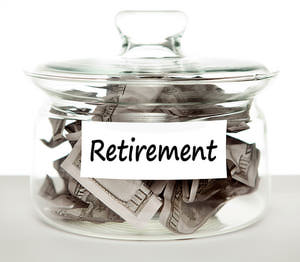How Will The Flat Rate Pension Affect You?
 Although it isn’t due to be introduced until 2016, the flat rate state pension is a major shake up of the retirement benefits system and will have an impact on anyone retiring after that time. It’s therefore important to understand what it means and to carry out a pension review accordingly.
Although it isn’t due to be introduced until 2016, the flat rate state pension is a major shake up of the retirement benefits system and will have an impact on anyone retiring after that time. It’s therefore important to understand what it means and to carry out a pension review accordingly.
If you’ll be retiring before April 2016 then the changes won’t affect you and you’ll be paid a state pension under the current system. Currently this is £107.45 a week for the basic pension or £142.70 if you get the additional pension based on National Insurance contributions or you get pension credit.
Retirement After April 2016
If you reach state pension age after April 2016 then you’ll receive the flat rate pension rather than the existing one. This involves some major changes as follows:
1. You’ll need to have made National Insurance contributions for at least ten years to qualify for a pension (currently it’s only one year) and this will only get you £41 a week.
2. To get the full state pension you’ll need to make 35 years’ worth of NI contributions (currently you only need 30 years).
3. With 35 years’ NI contributions you’ll receive £144 a week at today’s values. Since state pensions are adjusted for inflation this is likely to be more when the policy comes into effect. The new pension will be adjusted in line with the CPI index or 2.5% each year, whichever is higher.
4. The second state pension, pension credit and other top-up schemes will cease. However, if you’ve already built up an entitlement to a higher pension through second pension or SERPS contributions before 2016 this will be protected but you won’t be able to add to it.
5. You’ll be able to take time out to raise a family and still build up state pension qualifying years, which isn’t currently the case.
6. Eligibility for a pension will be on an individual basis, so married couples will each get their own pension rather than the married couple’s rate that’s paid at present. The other side of this is that a widow without enough qualifying years for a full pension will no longer get a portion of her husband’s pension after he dies.
7. If you’re still in a final salary pension scheme with an employer you’ll end up paying more in NI contributions as the contracting out option will no longer be available.
8. The state pension age will be reviewed every five years starting in 2016. It’s currently planned to increase it to 66 in 2020 and 67 in 2028.
Additional Pensions
Because the changes mean the end of the second state pension if you need to increase your income in retirement you’ll need to look at other means. These changes overlap with the government’s plan to have all employees enrolled in a workplace pension scheme which will give them an additional means of saving for retirement.
Low earners and the self-employed, who may in the past have found it hard to build up enough contributions for a full state pension, will benefit most from these changes.
If you’re on a higher income want to save more for your pension then you’ll need to look at other alternatives outside of National insurance such as starting a private pension plan or a SIPP. If you’re in a pension scheme with an employer you could also look at making additional voluntary contributions (AVCs) to boost the value of your pension pot.
Kay Brown is a writer who has a keen interest in personal finance. With the imminent changes to pensions, she suggests conducting a pension review so that you know the impact that the flat rate pension will have on your retirement.
















